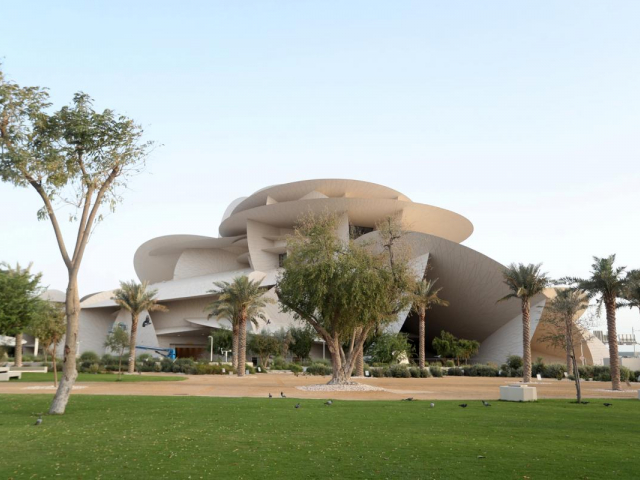
National Museum of Qatar (Qatar)
The opening ceremony of the museum designed by Pritzker prize winner Jean Nouvel was held on March 28, 2019, in Doha.
The shape of the museum resembles the famous mineral – desert rose. For more similarity with the mineral, the architect added a sandy facade which perfectly fits the architectural image of the building in the desert landscape.
Its great big inward-curving disks perform all structural and architectural functions despite their illusory fragility. The construction of the National Museum of Qatar was carried out for about 10 years. This project was a real test for all who worked hard to bring this bold idea to life.
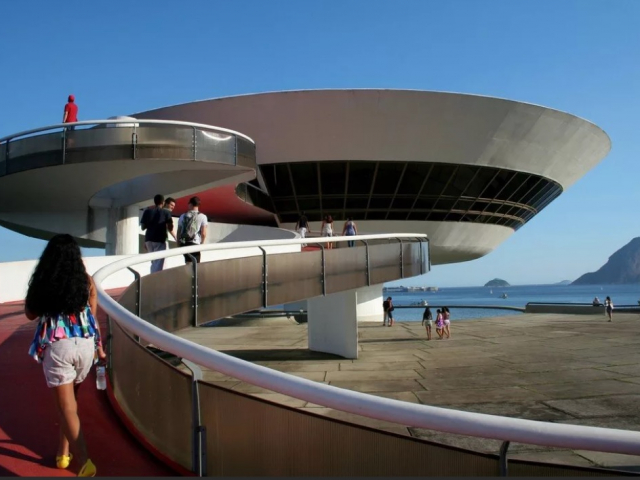
Niterói Contemporary Art Museum (Brazil)
The creator of this building is famous Brazilian modernist architect Oscar Niemeyer. The construction of the museum was completed in 1996.
The Niterói Contemporary Art Museum attracts tourists from all over the world with its uncommon shape: the construction looks like a UFO landed in the middle of the pond. A visitor can get inside by climbing a spiral ramp with a red covering. The observation deck offers stunning views of Guanabara Bay, Rio de Janeiro, and Sugarloaf Mountain.
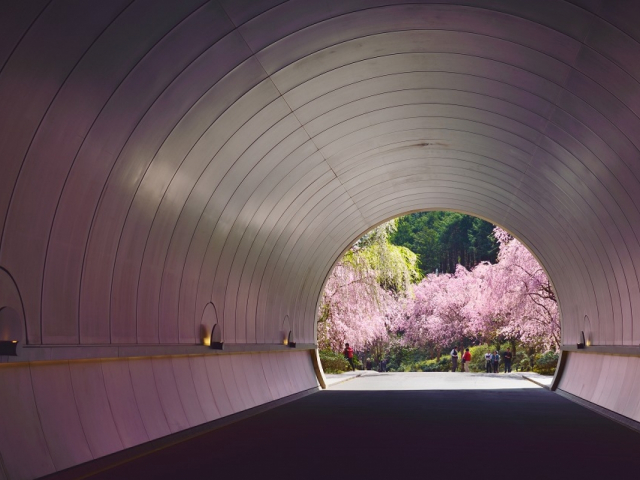
Miho Museum (Japan)
The Miho Museum is located in the North-East of Kyoto among the forested mountains. In spring, a visitor can witness the Sakura blossom and a bit farther opening beautiful views of the courtyards and galleries of the Museum.
The Museum was named after its spiritual founder, Mrs. Mihoko Koyama, who wished to build a museum in the heart of the mountains, near the main temple of the Sumei school. Famous Chinese-American architect Ieoh Ming Pei, the designer of the Louvre pyramid, was commissioned to create the Miho Museum.
He made most of roofs and walls of glass. The architect finished his work in 1997.
The museum is literally steeped in the sunlight and air of the mountain forest. All the exhibits are demonstrated in accordance with their color and shape, the logic of light falling, and the configuration of the surrounding space.
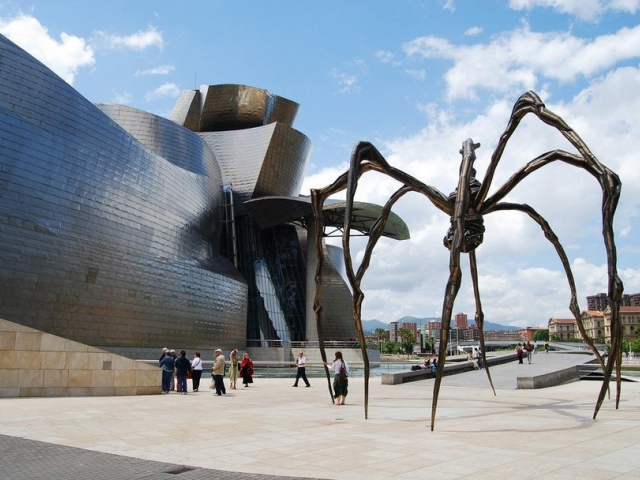
Guggenheim Museum Bilbao (Spain)
Guggenheim Museum Bilbao is not only a great example of deconstructivism movement in architecture but also one of the most significant buildings of the late XX-early- the beginning of XXI centuries.
The museum was being built in a period between 1980 and 2010.
The unique design of the Solomon R. Guggenheim Museum of contemporary art was created by American-Canadian architect Frank Gehry who harmoniously blended it into the surrounding landscape. The building changes its color depending on lighting and weather conditions due to the thousands of titanium sheets lining.
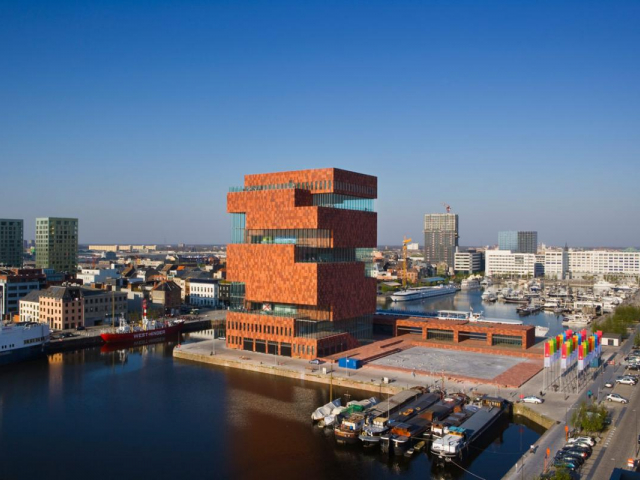
Museum aan de Stroom, MAS (Belgium)
The museum by the river or aan de Stroom is located in Antwerp. Architects Willem Jan Neutelings and Michel Ridike, inspired by the warehouses located there in the 19th century, opened it to the public in 2011.
The roof of the Museum, covered with slabs of Red Indian sandstone, offers a panorama of Antwerp. In the outer design of the 10-tier tower, the creators used the images of human hands as decorative elements.
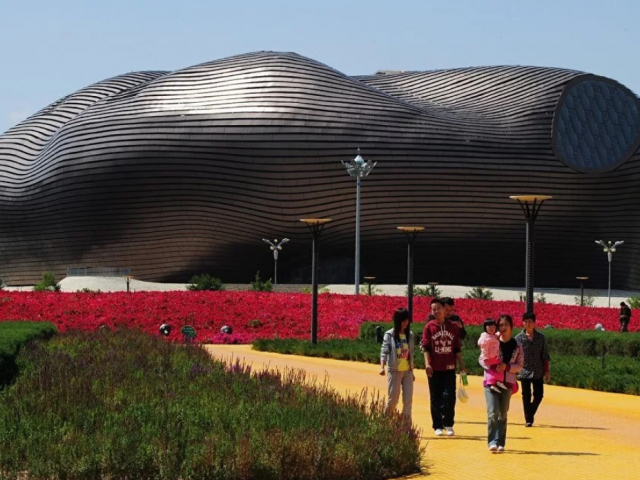
Ordos Museum (China)
The Ordos Museum, built in 2011, united the culture of the Ordos desert in Central Asia and the technology of the future.
The geodesic domes projected by American architect Richard Fuller were taken as an example for the shape of the museum. Not all the locals, however, truly liked this building.
The amazing structure of the barrow-shaped building is covered with metal blinds that reflect the surrounding landscape.
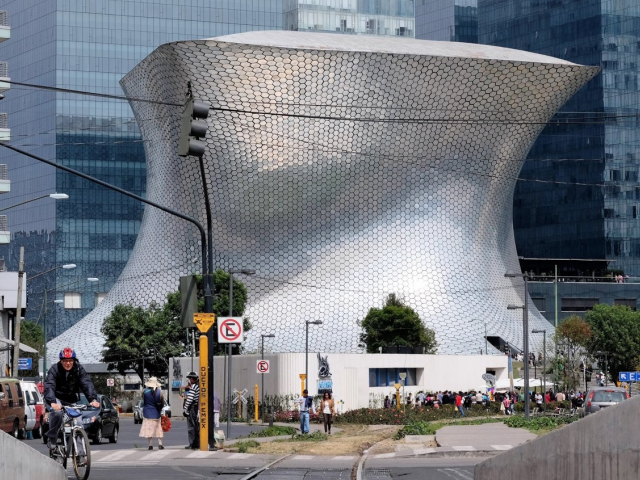
Museo Soumaya (Mexico)
The Museo Soumaya is a private art museum in Mexico City. The museum was built on Carlos Slim’s money as he wanted to put his own art collection there.
The design of the building was developed by Fernando Romero. He made the museum in the futurism style. Its shape resembles an hourglass. The building is named after Carlos Slim’s wife.
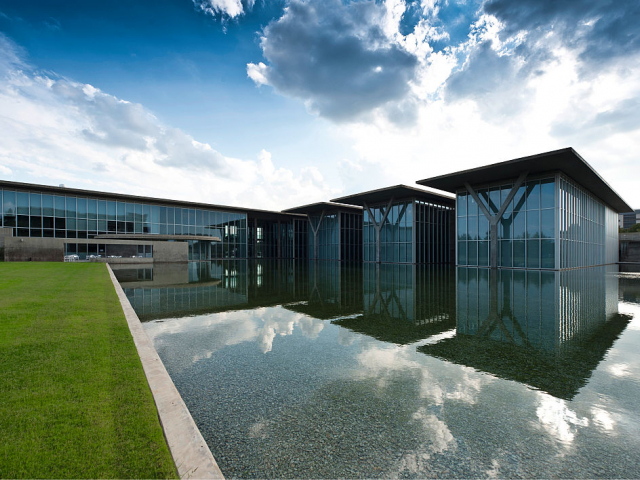
Modern Art Museum of Fort Worth (US)
The construction of the Modern Art Museum of Fort Worth dates back to XIX century. However, the building obtained its modern look only in 2002. Tadao Ando worked on the architectural design of the museum. He divided the space of the museum into five pavilions reflected in the local pond.
The museum looks amazing at night. The pavilions are illuminated from the inside. Their reflections resemble huge flickering lanterns.
 English
English 
 Русский
Русский Bahasa Indonesia
Bahasa Indonesia Bahasa Malay
Bahasa Malay ไทย
ไทย Español
Español Deutsch
Deutsch Български
Български Français
Français Tiếng Việt
Tiếng Việt 中文
中文 বাংলা
বাংলা हिन्दी
हिन्दी Čeština
Čeština Українська
Українська Română
Română
